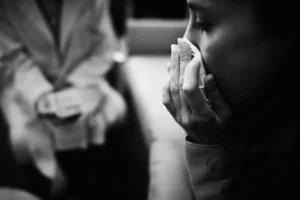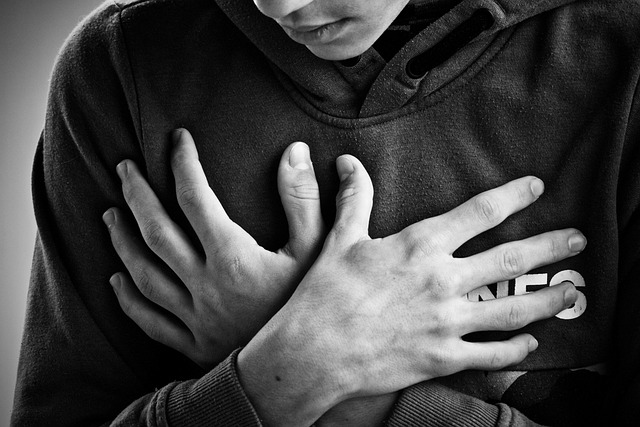Previously, in this blog, we discussed anxiety treatment and how you can support a person with this psychological disorder.
On this occasion, we will talk about different aspects of the disorder that a person suffering from anxiety can go through. We also expose the role of psychological therapy in treating anxiety for the recovery of health and reducing its negative impact on the quality of life.
To begin with, it is essential to clarify that in the day-to-day, we are exposed to a series of stimuli that can cause anxiety and stress, and it is something completely normal that can be worked through simple techniques of self-control, breathing, and concentration.
Nevertheless, when these stimuli produce disproportionate reactions that interfere with a person’s daily activities, preventing him from leading an everyday life and causing multiple discomforts, it is said that he has an anxiety problem that must be diagnosed and treated by a specialist.
Anxiety Treatment – Considering different forms of the disorder
Anxiety can take different forms, and the symptoms and behaviors that trigger different anxiety disorders are identified.
These fears can make it difficult to concentrate on daily tasks and cause physical reactions that make breathing and speech difficult. Naming a few examples, it can modify sleep and eating habits. It can also be challenging to control it as the cause of anxiety cannot be easily identified.
Panic disorder
The appearance of phobias and intense fears is also related to anxiety. Although sometimes they are not given much importance, they must be treated by a specialist, especially when they prevent the person from leading an everyday life.
Obsessive-compulsive disorder
Obsessive-compulsive disorder is another of the conditions associated with anxiety. As its name implies, those who suffer from it have obsessions, uncontrollable, unwanted, and persistent thoughts that lead them to perform rituals or routines. It is called compulsion to free themselves from the anxiety produced by such thoughts.
Anxiety also occurs in other episodes, such as post-traumatic stress disorder. It causes extreme fear, tachycardia, shortness of breath, chest tightness, tremors, dizziness, nausea, insomnia, and alterations in diet, such as appetite suppression or increased food intake.
Anxiety disorders and those related to them can develop at any time in life, and the reasons why they originate are very diverse. It goes from traumatic episodes to genetic predisposition or the presence of other non-psychological conditions.
The treatment of anxiety is of great importance to reduce the adverse effects of its symptoms and behaviors derived from them on the lives of those who present them.
These effects can include isolation and limitation of daily activities, mainly social ones, which generates problems at a work and personal level.
Anxiety disorders can be associated with diseases or other psychological disorders. In some cases, if they are not treated promptly, they can develop more disorders, such as depression, or behaviors that allow them to free themselves from the burden generated by anxiety, such as drug abuse.
Anxiety Treatment
People who treat their anxiety go voluntarily to a specialist when they have identified the symptoms and how they affect their health. Still, in many cases, patients are diagnosed with this disorder when they go to the doctor because of physical discomforts that they do not know are signs of an anxiety attack, phobia, or panic.
Classification of Anxiety Treatment.
The treatment of anxiety is classified into two large groups: pharmacological and non-pharmacological.
Those who have to receive pharmacological treatment due to the causes that originate the disorder are also recommended a non-pharmacological treatment, that is, a psychological treatment.
It allows them to develop appropriate tools and techniques to deal with episodes of anxiety, identify the factors that cause them, and modify thoughts and behaviors resulting from the condition. However, not all people need pharmacological treatment, and psychological therapy may be sufficient.
Psychological therapy
Psychological therapy’s characteristics vary according to each person’s needs, but it generally uses psychotherapies, cognitive therapy, behavioral therapy, or group therapies.
The duration of non-pharmacological treatment depends on the condition’s characteristics and the patient’s progress. Still, after a couple of months, the symptoms are usually reduced to return to everyday life.
However, it is vital to bear in mind that no therapy, no matter how effective, can offer immediate results, and it is a matter of collaborative work between the patient and the therapist that the treatment yields good results.
During therapy, evaluations are carried out to measure the patient’s progress. If necessary, the specialist may recommend opting for another therapeutic alternative or complementing the psychological treatment with drugs or other therapies.
Finally, it is worth highlighting the importance of support from family and friends in treating anxiety and mentioning that it may be possible for the therapist to suggest family or group therapy sessions at some point in the process.

Ibogaine Treatment: Pros, Cons and Scientific Evidence
Ibogaine is a psychoactive alkaloid derived from the roots of the African plant iboga, in recent years has captured attention as a potential treatment for

How Their Parents’ Drug Addiction Affects Children
We cannot deny that parents’ drug addiction affects children. In our cocaine rehabilitation center, we know how this substance’s consumption disturbs the home’s well-being and

Sadness vs. Depression -Falling to the Bottom
In the complex maze of emotions, it’s easy to mistake a corner for a hallway. Let’s see sadness vs. depression. These two terms may seem

10 Crucial Warning Signs of Depression – Decoding Despair
Have you ever questioned whether your persistent feelings of sadness or emptiness are signs of depression? What if unmistakable warning signs existed, enabling you to

What happens to your body when you quit smoking?
¿Have you ever considered the incredible transformation that unfolds in your life when you decide to quit smoking? What if I told you that the

Alcoholism in Latin American Community -The Silent Killer
Alcoholism, often called ‘the silent killer,’ hides a grave reality beneath its seemingly harmless surface in the Latin American Community in the USA. Millions grapple











